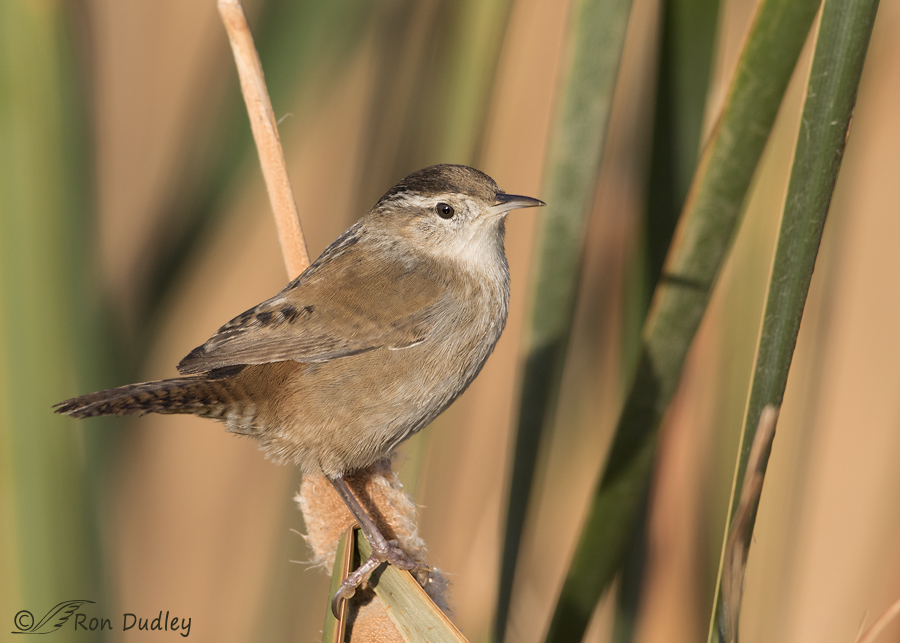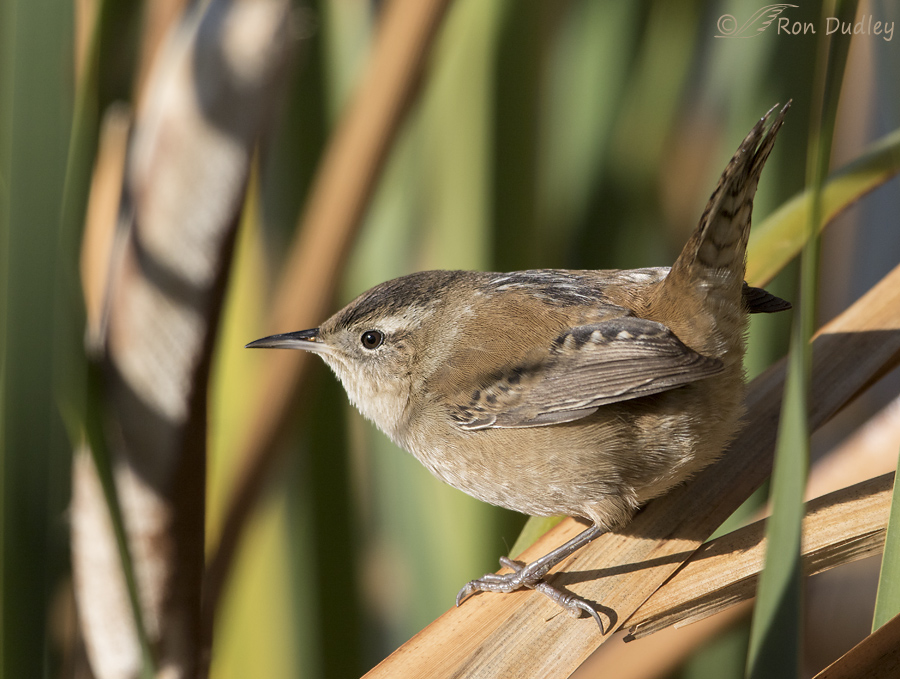I usually photograph Marsh Wrens in spring and early summer but I’ve had some luck with them this past week at Farmington.

1/1250, f/6.3, ISO 800, Canon 7D Mark II, Canon EF 500mm f/4L IS II USM + EF 1.4 III Extender, not baited, set up or called in
They’re less boisterous and saucy in the fall so they stay buried in the reeds more now than they do during breeding season. This time of year I don’t often catch them in their classic singing poses but occasionally one of them will come out into the open and check me out. They’re so flitty that they’re usually gone before I can get my lens trained on them but if I’m persistent I can get lucky once in a while.
This wren paused longer than usual on a cattail that was relatively out in the open and in good light. Considering the preferred habitat of the species the background is relatively uncluttered and I have good detail and light in the eye so I was pleased with the image.

1/2000, f/6.3, ISO 500, Canon 7D Mark II, Canon EF 500mm f/4L IS II USM + EF 1.4 III Extender, not baited, set up or called in
And yesterday this bird even raised its tail for me as they so often do while they’re singing during breeding season.
It was a joy to spend some time with these perky little birds yesterday morning. Given recent events I needed the distraction. And the therapy.
Ron
Addendum: Here’s a link to a video clip a of a chatty little wren singing in habitat if you’re interested.


Thank you for this lovely gift today Ron, it is a wonderful thing to make so many people smile!
And your comment made ME smile, Victoria. Thanks for that.
Love the second image and the link. Cast the shadows away.
We name it “Carriça”.
Thanks for showing these beauties.
I always enjoy knowing the Portuguese names for the birds I post, Jorge. Thank you.
Just beautiful. I could feel tension ease as I watched (and listened). Loved this series and the video clip.
Megathanks. As always.
Thank you, EC.
As usual, you’ve caught great morning light on this little rascal. The shadow cast in the first shot is quite nice. And great detail, Ron.
I love morning light, Chris. Probably 95% of my shooting is done between dawn and about 3 hours later.
These are beautiful shots Ron, well done!!
Many thanks for the video, that should help a lot in the spring.
Thanks for sharing.
Thank you, Dick.
Thanks to you and to Larry ( clip) and to the “chatty” little Marsh Wren for the therapy ; I very much needed a reminder this morning of what’s beautiful, important, and worth fixing my attention upon……..
I know the feeling, Kris.
Great shot, Ron! It’s so hard to get a shot of this little skulker without some part of the bird obstructed by the reeds- well done! And thank you for making me smile this morning
“It’s so hard to get a shot of this little skulker without some part of the bird obstructed by the reeds”
So very true, Diane. Thank you.
These are awesome shots of this elusive little bird Ron Thanks for the link to the video. I’m sure going to try to subscribe.
Charlotte
I’m glad you enjoyed the clip, Charlotte. Thanks.
Marsh Wrens are fun birds (as are most Wrens in my opinion). I’ve seen one in the wild exactly once, many years ago, and the memory that sticks with me looks just like your second shot. I’m glad you had luck with these guys yesterday – such encounters are definitely restorative, and we need all of those we can get, even in normal times.
I’m not sure what I’d do without birds, Susan – for me they’re the magic elixir.
I knew I would find something to smile about here, Ron.
Avian therapy and a cup of joe with a splash of mule deer in the pasture. I’ll be OK today.
Neil, I envy your little piece of heaven up there. Enjoy!
You are welcome to come up and see us anytime, Ron.
I LOVE wrens! They have such fun personalities and are sure persistent when it comes to nesting activities:) Great shots of both the bird and the background, Ron.
They’re persistence personified when it comes to nest building, Judy. Many males build over a dozen “dummy nests” in a single nesting season.
Sooo cute!!!! Love them!!!! I will have to watch out for them. I have never seen one before.
Look for cattails in the marshes, Marina – that’s where they’re usually found. And listen for their “song” – which isn’t very pleasing to the ear but it certainly gives their presence away.
I’ll add a link to a video clip at the bottom of my post to show you what to look and listen for.
These photos cheered me up too. Ron. Thank you
Good!